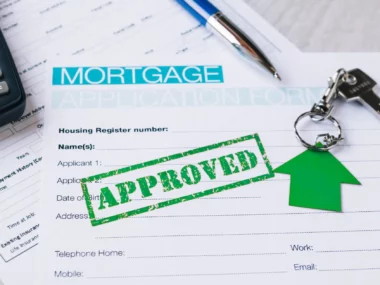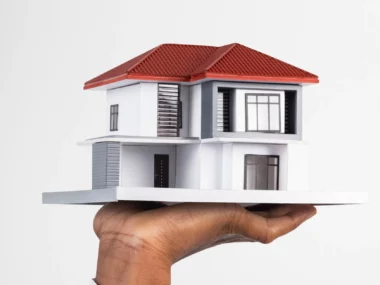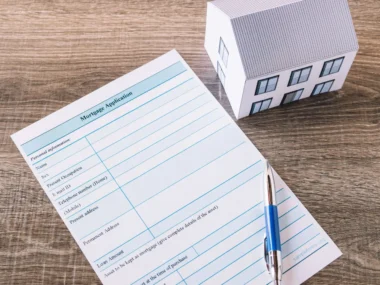Table of Contents
Getting a home loan can be a bit difficult due to certain hurdles that might prevent it from happening, and such hurdles can get even harder to overcome in cases of applicants who live on disability income.
This is because some lenders might not consider a disability income as a stable and reliable income source that would help the borrower make payments after getting the home loan.
However, thanks to certain specialized home loans and grants that have been specifically designed to help disabled people buy a home, people with disabilities not only qualify for home loans, they can also get ones with favourable terms.
These specialized disability home loans usually come with more indulgent credit score requirements and lower down payments.
Disability home loans such as Fannie Mae HomeReady Loan, FHA home loans for disabled persons, USDA home loans for disabled persons, VA loans, and so on, accept disability income such as Long-Term Disability Income, SSI, SSDI, and more.
This article will guide you on the different types of specialized Disability Home Loan Grants, how they work, and their eligibility requirements.
Is it Possible to Buy a Home on Disability Income?
As long as it is steady and consistent, it is quite possible to purchase a home when you solely rely on disability income. The majority of lenders, with the inclusion of those providing government-insured home loans such as the Federal Housing Administration (FHA), will accept disability income for you to qualify for a home loan.
The Fair Housing Act forbids lenders from disqualifying home loan applicants because they are on disability. The implication of this is that no lender can refuse you a loan or impose outrageous loan terms just because you are on disability. They will however scrutinize your income sources, the same way they would any other applicant, to verify their reliability.
What Types of Disability Income Can be Used to Buy a Home?
Many specialized home loan programs are designed particularly for disabled borrowers. Lenders here will consider disability income sources such as long-term disability payments, Social Security Disability Insurance (SSDI), Supplemental Security Income (SSI), and other verified ones when deciding if you qualify.
What is the Fair Housing Act?
The Fair Housing Act is a vital piece of legislation designed to shield applicants (including those with disabilities) from discrimination in housing and housing-related transactions.
According to the act, lenders are not allowed to deny financing or impose unfavourable loan terms just because the applicant lives on disability.
This act is the legal basis for why Lenders must consider every reliable income source when examining a loan application.
Best Disability Home Loan Grants
Since you have your proof of disability income, and thanks to the Fair Housing Act, lenders can’t discriminate against you for living on disability, the only thing left is to determine which one of the many types of home loan options is right for you.
On that note, here are some of the Best Disability Home Loan Grants and How To Explore Them.
Fannie Mae HomeReady Loan
This is a special conventional loan program that offers affordable home loans to buyers, including those with disabilities, with low to moderate incomes and good credit. The loans offered here come with favourable interest rates, lower down payment requirements, and other benefits.
Another great quality that sets this loan apart from other types of loans is that it helps disabled borrowers by accepting non-traditional sources of income such as Social Security and long-term disability benefits. The benefit of this is that you can cover the whole down payment using grants, down payment assistance funds, or money got as a gift instead of dipping into your savings.
HomeReady loans allow “non-occupant co-borrowers”, which means you can include the name of someone who does not live with you in your mortgage application process. The benefit of this is that you can use their credit history or income to help you qualify for a loan in case your own credit or income limits are not good enough.
Eligibility Requirements for a HomeReady Loan
- A credit score of at least 620.
- A minimum of 3% down payment.
- Low- to moderate-income.
- Must live in the house as a main residence.
FHA Home Loans for Disabled Persons
These are home loans insured by the Federal Housing Administration. They make purchasing a home affordable by providing loans with low credit scores and low down payment requirements.
One of the great qualities of these loans is that they offer buyers who are unable to get traditional loans due to low credit scores or low incomes (including people with disabilities), a chance to buy their dream home.
As someone with a disability, FHA loans are designed to help you get your dream home. They accept disability income as a qualifying source and offer low down payment options, flexible credit rules, and favourable interest rates.
Another wonderful quality of the FHA loan is that you can cover the entire down payment and closing costs using down payment assistance or gifted money. Therefore, you don’t need to save up a huge amount of money before you can buy a home.
Eligibility Requirements for an FHA Loan
- A Proof of Income Letter depicting income from the SSA.
- Federal tax returns.
- A current bank statement depicting receipt of income from social services programs.
- A copy of your Social Security Benefit Statement.
VA Home Loans for Disabled Veterans
There are government-insured home loans offered to Veterans, service members and surviving spouses. They come with low-interest rates and terms and are usually granted by private lenders, like mortgage companies and banks, not the Department of Veterans Affairs. VA loans don’t usually require a down payment and can be used to acquire different kinds of buildings.
Another great benefit that this loan offers veterans is that they can include VA disability income on their mortgage application. Although there is no minimum credit score to qualify for a VA loan, majority of lenders require a FICO score of at least 580 to 620.
Eligibility Requirements for a VA loan
- You have to live in the home as your main residence.
- You need an acceptable credit.
- You must earn enough income to settle mortgage payments.
- You must meet service length requirements.
USDA Home Loans for Disabled Persons
These are loans insured by the U.S. Department of Agriculture with special options for disabled borrowers. It doesn’t require a down payment and it is a great option for eligible low-income buyers. The required credit score is usually a minimum of 640.
These home loans fit into two categories – USDA Guaranteed Loans and USDA Direct Loans.
USDA Guaranteed Loans
Although these loans are insured by the USDA, they are not directly issued by the federal government. Instead, they are granted by approved private lenders.
Eligibility Requirements for USDA Guaranteed loan
- A minimum credit score of 640.
- The property you want to purchase must be located in a USDA-approved “rural area”.
- An income that is not over 15% above your area’s median income.
USDA Direct Loans
For this home loan program, the USDA usually cover a part of the homeowner’s monthly mortgage payments. The buyer’s household income will decide their eligibility for this program and the amount they will receive in terms of payment assistance.
Applicants with disabilities whose income falls below the area’s median income may be eligible for a USDA Single Family Housing Direct Loan. Also, the fixed interest rates on these loans can be as low as 1%.
Who Qualifies for a USDA Direct Loan?
These loans are available for applicants who:
- Can’t get an affordable home loan.
- Have qualifying low-income for their area.
- Don’t have safe or healthy housing.
- Are not prohibited from federal loan programs.
- Meet citizen or qualified non-citizen requirements.
- Plans to use the property only as a residence.
- Wants to buy a home with a square footage of not more than 2,000.
Tips for Buying a House on Disability
Getting a house might be a bit tricky when you’re not making the purchase using a regular source of income.
When you need to buy a house but all you depend on comes from disability income such as Supplemental Security Income (SSI) or Social Security Disability Insurance (SSDI), here are some tips to keep in mind to help you navigate the process successfully:
1. Improve your credit score: When trying to purchase a home on disability income, ome of the factors that will help you get a great deal is if you have a clean credit report and a strong credit score. Typically, having an excellent credit score will get you a lower interest rate and other favourable loan terms. This is why you must work on improving your credit before applying for a home loan.
2. Arrange a down payment: Find out the required amount for a down payment on the house you would like to purchase and work on putting it together. Generally, down payments range from 5% to 20%, though some lenders may let you pay as little as 3%.
3. Research lenders: So you can get the best rates, you will be wise to research lenders and compare offers.
4. Determine your debt-to-income ratio: Part of the things that a lender will check when considering you for a home loan is your debt-to-income ratio. This helps them to calculate your capability regarding the amount of loan you can afford.
5. Apply: After comparing lenders and selecting the one with the best offer for you, the next step is to prequalify for a home loan with them. You can either apply online or in person.
Eligible Disability Income Sources for a Mortgage
Long-Term Disability Income
This is a type of income that covers a long-term disability and is paid to you until you reach retirement age. It is considered an acceptable source of income by lenders of home loans. This disability income covers a part of your income if you can’t work for a long period.
The amount given to you could range from 60% to 80% of your salary. The general waiting period for long-term disability insurance ranges from 90 days to a year.
The most common conditions covered by long-term disability include:
- Cancer.
- Musculoskeletal disorders.
- Mental health issues.
- Heart attack.
- Muscle and ligament strains, fractures and sprains.
Supplemental Security Income (SSI)
SSI is a federal program in the United States that offers extra income to older adults and people with disabilities who earn little to no income. Through SSI, people with disabilities are provided with monthly cash distributions to help cover their basic needs.
Although most mortgage lenders accept SSI, the amounts tend to be less than SSDI. If SSI is the applicant’s main source of income, they might find it hard to get a loan based on income requirements.
Social Security Disability Insurance (SSD or SSDI)
Also known as Disability Insurance Benefits (DIB) and Title II disability benefits, SSDI is a federal insurance program that offers monthly benefits to people with a medically diagnosable disability that prevents them from getting jobs. SSDI does not give half or temporary benefits, instead, it pays only full benefits.
In a nutshell:
Living on disability income doesn’t automatically disqualify you from getting a home loan.
Numerous specialized disability home loan programs have been designed to help borrowers living on disability get their dream home.
Peruse the different Disability Home Loan Grants discussed above and pick the right one for you.






